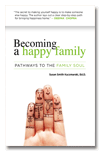What Should Parents Know About
Social Media and Teens?
1. Know that teens are very different beings than adults. My research looked at the social learning that occurs in teen peer groups in settings outside school. Consider the following mix of common teen traits that parents, teachers and those who work with teens must keep in mind at all times:
- A new mode of thinking, which Piaget termed “formal operations,” lets teens think in different and more abstract ways than was possible when they were children. Unlike adults, they aren’t very good at using this new thinking and need lots of practice using it.
- Self-consciousness, sometimes called an “imaginary audience,” can be overwhelming in teens. They assume that everyone around them is preoccupied with the same subject that engrosses them: namely, themselves. This is the “everyone is watching” me and is as interested in my behavior and appearance as me. Because of this, teens are very sensitive about public exposure. Adults who work with teens must avoid public correction or criticism. If they have to speak to a teen about behavior, they should do so in private.
- Self-centeredness exists. Teens are caught up with the transformations that they are undergoing—in their bodies, in their feelings, in their emotions, and in their new thinking powers.
- Teens don’t know their feelings all that well and may not be able to identify and label them. Moreover, their moods change so rapidly that choices made on the basis of the feeling of one moment may not be suited to the feelings of the next. As a result, there is a poor fit between teenagers’ decisions and feelings.
2. To top off this teen mix, keep in mind that teens truly believe that they absolutely do not want controls, and that without them (i.e. complete freedom) they would do just fine. But the fact is that controls do act as a source of (...continue reading)

 Dr. Susan Smith Kuczmarski has taught at 8 universities, now at Northwestern University and Loyola University in Chicago. She is an award-winning author of 6 books, 3 on families and 3 on leadership, including her newest, Becoming A Happy Family: Pathways to the Family Soul (2015), and her best-selling, The Sacred Flight of the Teenager: A Parent’s Guide to Stepping Back and Letting Go, which was released (2019) in Egypt in Arabic. Trained as a cultural anthropologist, she has researched extensively how children learn social skills and teens become leaders. A frequent radio and television guest, she has appeared on "The Today Show" and speaks regularly to parents and educators. Listed in Who's Who in the World for 12 years and an International Fellow of Columbia University, her 35 years of college teaching and research have made her an expert on issues devoted to the contemporary family.
Dr. Susan Smith Kuczmarski has taught at 8 universities, now at Northwestern University and Loyola University in Chicago. She is an award-winning author of 6 books, 3 on families and 3 on leadership, including her newest, Becoming A Happy Family: Pathways to the Family Soul (2015), and her best-selling, The Sacred Flight of the Teenager: A Parent’s Guide to Stepping Back and Letting Go, which was released (2019) in Egypt in Arabic. Trained as a cultural anthropologist, she has researched extensively how children learn social skills and teens become leaders. A frequent radio and television guest, she has appeared on "The Today Show" and speaks regularly to parents and educators. Listed in Who's Who in the World for 12 years and an International Fellow of Columbia University, her 35 years of college teaching and research have made her an expert on issues devoted to the contemporary family.
















